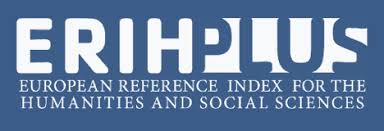№1, 2016
Analysis of technologies latent management of information security has become one of the most important factors in the modern information society. Using wiki-based projects as a means of social media is closely linked to public use information and communication technologies by people. The purpose of research is to study the phenomenon of social media, determination of the place in society wiki environment, as a means of social media and its role in the information influence. To achieve this goal, the concept of social media research and identify the areas covered by the social media. Were identified problems associated with user-generated content in a wiki environment, reveals the essence of the license Creative Commons. The main trends, those provide informational influence of wiki environment (pp.69-77).
- Alguliev R.M. Mahmudov R.Sh. The essence, features of Internet and some views on its impact opportunities // Problems of the Information society, 2012, №1, pp. 41-51.
- http://www.sosialmedia.net/?page_id=7
- Alguliev R.M., Valehov J.F., Mahmudov R.Sh. Some aspects of the formation of Internet-journalism. Express-information. The Information society series, Baku, “Information Technologies” press, 2008, 32 p.
- Alguliev R.M., Alakbarova I.Y., Kasumova R.T. The collective knowledge in Internet // Proceedings of sixth international scientific-technical conference “Internet-Education-Science-2008”, Vinnytsia, 7-11 October, 2008, pp. 5-7.
- Rozina I.N. Communications 2.0: educational and social dimensions, limitations and opportunities // Educational technologies and the society, 2010, vol.13, №2, http://www.ifets.ieee.org/russian/depository/v13_i2/html/6.htm
- Alakbarova I.Y. The analysis of some information war technologies carried out in Wiki environment // Problems of the Information society, 2011, №2(4), pp. 18-28.
- Benkler Y. The Wealth of Networks: How Social Production Transforms Markets and Freedom, Yale University Press, 2006, 527 p.
- Alakbarova I.Y. On some approaches to the analysis of information impact of users in social networks // The Information society, M., 2012, №3, pp. 31-38.
- Mayfield A. What Is Social Media? http://www.repromax.com/docs/113/854427515.pdf
- Farrell H., Drezner D. W. The power and politics of blogs // Springer Science and Business Media, 2008, vol. 134, no. 2, pp. 15-30.
- Perlmutter D. Blogwars. Oxford University Press, 2008, 272 p.
- Christensen H. Social media, big data and the next generation of e-health interventions, https://www.psychology.org.au/Content.aspx?ID=5848
- http://wikipedia.org
- Pavlik J. Converging Media. Oxford University Press, 2014, 140 p.
- http://www.creativecommons.ru/licenses
- http://www.wikimapia.org
- http://www.wikitravel.org/en/Main_Page
- Baluev D.G. The political role of social media as a field of scientific research // Educational technologies and society. 2013, vol.16, № 2, pp. 604-616.
- Nye J.S. The Powers to Lead. Oxford University Press, 2008, 240 p.
- Halavais A., Lackaff D. An Analysis of Topical Coverage of Wikipedia // Computer-Mediated Communication, 2008, vol. 13, no. 2, pp. 429-440.
- Alakbarova I.Y. The analysis of the socio-demographic portrait of wiki-environment // Problems of the Information Society, Baku, 2012, № 1, pp. 21-28.
- Garifullin R.R. Wikipedia: psychology of virtual war, http://www.psyfactor.org/lib/garifullin11.htm
- Alguliev R.M., Aliguliev R.M., Alakbarova I.Y. Wikimetric studies: the current state and perspectives // Telecommunications, 2014, №5, pp. 15-31.
- http://www.hudong.com
- https://en.wikipedia.org/wiki/Wikipedia:Sock_puppetry
- Sumi, Yasseri T., Rung A., Kornai A., Kertész J. Edit wars in Wikipedia / Proceedings of the IEEE Third International Conference on Social Computing, 9-11 Oct. 2011, pp. 724–727.
- Awan A.N. Virtual Jihadist media: Function, legitimacy, and radicalizing efficacy, European Journal of Cultural Studies, 2007, vol. 10, no. 3, pp. 389-408.








.jpg)



